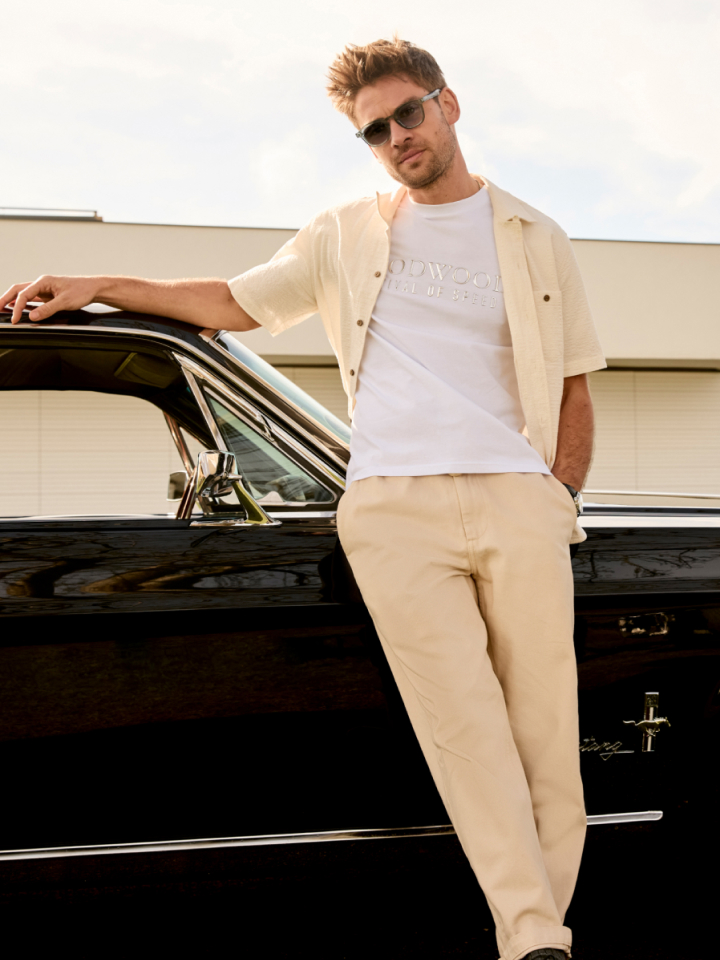Five amazing machines tucked away at FCA’s Heritage Hub
On the outskirts of Turin, in the giant complex of buildings and warehouses that makes up Fiat’s Italian head office, lies the FCA Heritage Hub. If you’re a fan of Italian motoring, it’s like an all you can eat buffet for classic Fiats, Alfa Romeos, Abarths and Lancias.

Once a Fiat factory floor, the giant space that makes up the Heritage Hub opened its doors for the very first time in April. It’s purpose? Not to be yet another static museum of classic cars, but a base from which some of the most exquisite and unique FCA vehicles can be seen, enjoyed and cared for, and as often as possible sent away to be driven in shows and at events all over the world.
Whether it’s a Lancia Delta Integrale that get’s your heart racing or a Fiat Panda with tank tracks, the Heritage Hub is one of those places where you’re almost certainly going to be picking your jaw up off of the floor several times a minute.
Of course almost every single car in the entire building could be considered worthy of a story, but for the sake of simplicity we’ve chosen five cars of particular interest.
Abarth 500
The car you see here is the very first Abarth 500, built in early 1958 just a few months after the original Fiat 500 was unveiled in 1957. Where the standard 500 produced just 13bhp from it’s dinky 499cc engine, the Abarth produced 26bhp from a 595cc engine.
As the very first Abarth 500, Carlo Abarth, the company’s founder, used it as a test car and to claim several records at Monza, but after not too long the decision was made to repaint this little pocket-rocket and revert it back to standard Fiat 500 specification.
After almost sixty years of solitude the car was restored and returned to its record-breaking specification, with the exception of the ‘Abarth 500’ stickers which were originally hand painted graphics. This is one very special little car.
Lancia D25
You probably don’t know anything about the Lancia D25, but you really should. The D25 was designed by Vittorio Jano and built by Pininfarina as the successor to the highly successful D24, a car that won the Carrera Panamerica, the Mille Miglia and the Targa Florio. It had a 3,750cc 60-degree V6 and, with a brave driver aboard, “could reach a top speed of no less than 300km/h”. Sadly it never had the chance to enter a single race, as Lancia decided to focus all of its efforts on Formula 1. The D25 project was canned, making this the only example in the world.
Fiat ESV 1500
While some more modern Fiat models like the Panda and Punto have fallen behind the times when it comes to safety, Fiat does care, and always has cared, about safety. For proof, look no further than the ESV 1500.
A product of Fiat’s attendance of the International Technical Conference on the Enhanced Safety of Vehicles held in Paris in 1971, ESV stands for ‘Experimental Safety Vehicle’. (A larger, five-door ESV 2000 sits alongside the 1500 in the Heritage Hub, a car based on the Fiat 128.)
The working prototype 1500 was based on a Fiat 126, but, as you can see, featured huge front rubber protective bumpers designed to absorb the energy from a head-on collision.
By today’s standards the ESV 1500 wouldn’t stand up to much (it doesn’t have seatbelts, wing mirrors, ABS or airbags), but who wouldn’t want to drive what is effectively a lime green alligator.
Abarth 1000 Monoposto Record Classe G
An enthusiastic record breaker, Carlo Abarth had his eyes set on claiming his company’s 100th international record in October 1965. As the FIA had introduced new record classes in 1964, Carlo Abarth’s aim was to achieve the fastest quarter-mile acceleration in a G-class vehicle at Monza.
The car you see here had been a Formula 2 car the year previously, but it had its shell modified to be more aerodynamically efficient and its engine replaced, now a 982cc unit with Weber 40 carburetors and twin-overhead camshafts. Power stood at 105bhp and the top speed was said to be 225km/h. Carlo Abarth himself went on a diet, too, losing a total of 30kg.
In October 1965, with stiff opposition from higher displacement BMW and Porsche machines, the Abarth 1000 Monoposto Record Classe G set new record for acceleration in both the quarter-mile and half-kilometer distances.
Lancia 037 Group B
The last rear-wheel-drive Group B car to compete in the World Rally Championship, the 037 is a 1980s rally icon, the product of a collaboration between Lancia, Abarth, Pininfarina and Dallara. The 037’s body panels were constructed using a fibreglass reinforced polyester resin mounted over a steel subframe, meaning it tipped the scales at just 960kg, and the mid-mounted 2.0-litre turbocharged four-cylinder engine produced 280bhp or 325bhp depending on the spec.
While the car’s debut season proved problematic, the 1983 season saw Walter Röhrl clinch the WRC constructor’s title for Lancia, even if he was narrowly beaten to the driver’s title by Hannu Mikkola with the Audi Quattro.
Photography by Seán Ward.
Fiat
Lancia
Alfa Romeo
Abarth
Motorsport













































































